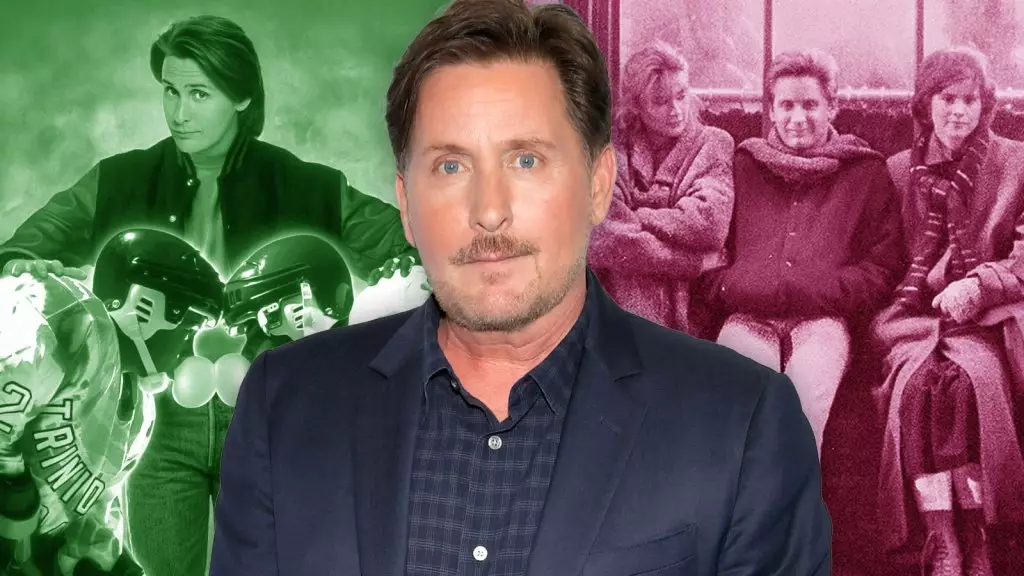Emilio Estevez is no stranger to the ups and downs of Hollywood, and his latest interview serves as a refreshing dose of honesty in an industry often shrouded in glamour and façade. Estevez, known for his role as Coach Bombay in the beloved “Mighty Ducks” franchise, recently unveiled his thoughts on the direction of the series and reflects on his experiences working under varying directorial styles. His willingness to voice concerns about the darker realities of filmmaking speaks volumes in a landscape increasingly characterized by transparency and authenticity.
Estevez candidly revealed his idea for a new installment, “Mighty Ducks 4,” showcasing his imaginative spirit and desire to innovate. The proposed plot, featuring the return of Coach Bombay to mentor an all-girls professional hockey team, signals an opportunity to inspire a new generation while addressing contemporary themes like female empowerment in sports. The narrative echoes a broader cultural shift towards inclusivity and representation, yet it is disheartening to hear that Disney opted not to pursue Estevez’s vision. This decision isn’t merely a business move but signals how the industry often prioritizes profit over groundbreaking storytelling. The constant battle between creative aspirations and corporate interests puts an undue burden on creators who genuinely want to make a difference.
Lessons from the Set: A Testament to Character
The juxtaposition of Estevez’s experiences with different directors further illuminates the inconsistencies that plague the film industry. His recollection of working with Joel Schumacher on “St. Elmo’s Fire” starkly contrasts the collaborative spirit of John Hughes. Estevez’s reflection on Schumacher’s “bully” tactics unveils a critical issue within Hollywood: the often toxic environments prevalent on film sets. This recounting is particularly poignant as it challenges the status quo, urging aspiring filmmakers to foster a culture of respect rather than fear.
In Estevez’s vow to never emulate Schumacher’s approach if given the chance to direct, he articulates an essential lesson for all creatives. The message here is clear: leadership should be grounded in compassion and encouragement, not intimidation. This perspective is vital, especially in an industry where mental health issues are becoming increasingly recognized but still often neglected.
Creative Authenticity Versus Corporate Constraints
Estevez’s narrative is also a commentary on the rigidity of corporate structures within the entertainment industry. The dismissal of his visionary ideas by Disney encapsulates a larger problem: a reluctance to embrace change and a failure to understand the cultural winds shifting outside corporate walls. The entertainment industry has an obligation to evolve, to listen to voices like Estevez’s, who advocate for more diversified stories that reflect societal changes.
By sharing his insights, Estevez doesn’t just reveal his personal experiences; he shines a light on the underlying issues that hinder creativity. His desire to mentor a new generation of female athletes through storytelling is not merely a project — it’s a call to action for the industry to align itself with progressive social movements.
Through the lens of Estevez’s experiences, we are reminded that art should not only mirror society but challenge it. The narratives that succeed are the ones that dare to explore beyond the familiar, tapping into the heart of humanity with honesty and courage. In a dynamic world, the call for resilience in the face of cinematic barriers is more crucial than ever.


Leave a Reply